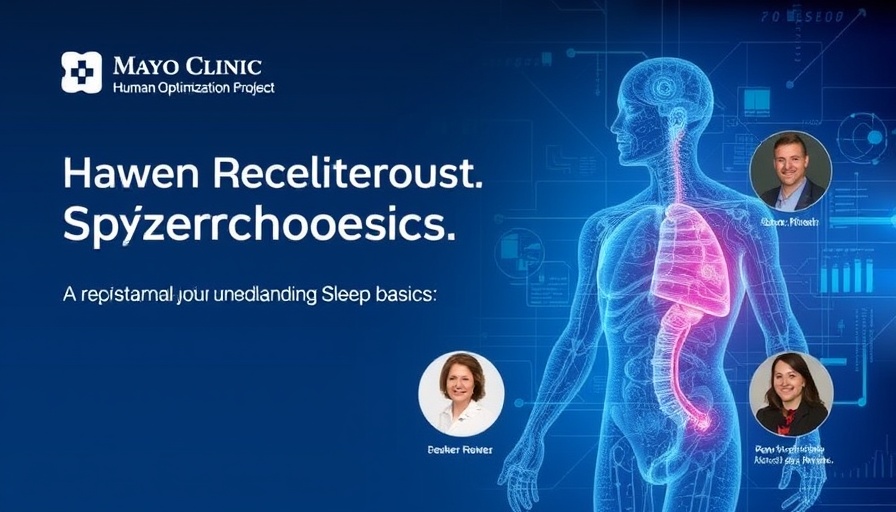
Unlocking the Secrets of Sleep: Why It Matters for Your Health
In the relentless rhythm of modern life, the importance of quality sleep often slips to the bottom of our to-do lists. Yet, as outlined in the Mayo Clinic’s Human Optimization Project, understanding sleep is crucial for our overall well-being. Sleep is a state of rest and repair, where our body and brain rejuvenate to prepare for the challenges of the day ahead. Dedication of nearly a third of our lives to sleep is no accident; it's an evolutionary necessity. Think of sleep as a recharge for your brain's battery, vital for optimal functioning.
In Mayo Clinic Human Optimization Project: Understanding the Basics of Sleep E14, experts delve into sleep's vital role for health, prompting our deeper analysis.
The Stages of Sleep: What Happens While You Snooze
Sleep is far from a one-size-fits-all activity. It’s broken down into multiple stages, primarily categorized into non-REM sleep and REM sleep. Non-REM sleep has three sub-stages: light sleep, deep sleep, and moderate sleep, while REM sleep is often characterized by vivid dreaming. Each stage serves unique functions—deep sleephelps conserve energy and repair tissues, while REM sleep promotes emotional processing and memory consolidation. Understanding these stages can help you appreciate your sleep's complex role in your health.
The Dangers of Sleep Deprivation: Are You Getting Enough?
The consequences of sleep deprivation can be dire. Short-term effects include decreased concentration, mood swings, and fatigue, while chronic lack of sleep may lead to severe health issues, such as cognitive impairments and heart disease. Most adults need between 7 to 9 hours of sleep each night for optimal functioning. However, recognizing your personal needs and listening to your body is essential!
Taking Charge: Simple Steps to Enhance Your Sleep Quality
Improving sleep starts with intentional choices. Regular exercise and maintaining a consistent sleep schedule can significantly impact the quality of your rest. Another critical factor is minimizing light exposure before bed. Try to limit screens in the evening to help signal your body that it’s time to wind down. It’s easier to embrace sleep when we prioritize it effectively in our everyday rhythms.
In a world where productivity often trumps personal health, taking steps to enhance your sleep isn’t just a luxury; it’s a necessity. By tuning into your body's rhythm and making these straightforward changes, you can transform your nights, and in turn, your days. So, embark on the journey of better sleep today—your mind and body will thank you!
 Add Row
Add Row  Add
Add 




Write A Comment